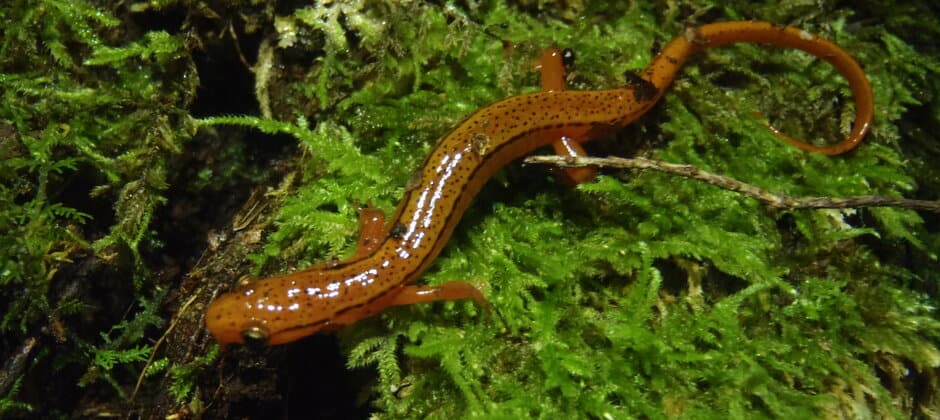- News
-
-
-
-
-
Latest News Articles
-
-
-
- Wildlife Professional Resources
-
- Our Network
-
- PUBLICATIONS
-
-
Recent Posts
-
 The Wildlife Professional November/December Issue
November 1, 2023
The Wildlife Professional November/December Issue
November 1, 2023
-
-
-
-
-
-
- Wildlife Events
-
-
-
Upcoming Webinars
- No Events
-
-
-
- Who We Are
-
Tag: two-lined salamander

July 25, 2022
JWM: Some Appalachian salamanders deal with fire better than others
Mountain waterways may become refuges for salamanders after wildfires burn through parts of the Appalachian Mountains. “These riparian habitats are providing really important shelter areas for some of these species,...

